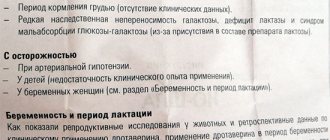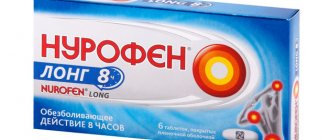15569
Toothache is one of the most unpleasant. At the same time, the variety of sensations that bad teeth can “delight” us with is enormous, as are the reasons that cause them.
Sometimes pain does not arise from chemical or temperature influences, as often happens, but from pressure on the tooth - with the tongue, fingers, or when chewing food.
Many believe that there can only be one cause of this pain, but experts talk about various factors that can cause pain and severe discomfort when pressing on a tooth.
However, even an experienced dentist, without a thorough examination and interview of the patient, as well as conducting some research, will not be able to assess the situation unambiguously.
Can a tooth give you a headache?
Are headaches and toothaches related? Connected, and quite closely. A bad tooth can cause a serious headache, which will be difficult to relieve with pills and sedative procedures.
What's the connection
The connection between headaches and toothache is the most direct. Both jaws are innervated by several pairs of cranial nerves. Mixed innervation allows partial preservation of sensitivity even if one of the nerve trunks is damaged. But these same nerves also innervate other parts of the face and head, so simultaneous pain in one area can be referred to another. This phenomenon is called pain irradiation.
Toothache can radiate to the cheekbones, forehead, nose, eye sockets, and less often to the entire head.
Mechanism of headache
If a putrefactive process involving bacteria occurs in a tooth, toxins reach the endings of nerve fibers, which, in turn, go up into the bone to the brain.
Not only nerves are involved in the development of the pain process, but also blood vessels. They permeate the space around the teeth, and the capillaries weave around the brain. Both the nervous and circulatory systems are closely connected, and if caries occurs in moderate and severe form, if pulpitis develops, then pain in the head is a natural result.
Possible reasons
The cause of toothache and its irradiation to the head is always a pathological process in the tooth. Toothache is always characterized by high intensity and persistence; it is difficult to combat if the tooth is not treated:
- Caries
Caries is the destruction of hard tissues – enamel and dentin. This occurs under the influence of pathogenic bacteria in the oral cavity. The peculiarity of pain during caries is that it is aching and intensifies with load on the tooth. There is also an increase in the sensitivity of the enamel - it reacts to hot or cold food, sweets, and spicy foods. The pain radiates to the head quite rarely, only in the later stages.
- Pulpitis
Pulpitis formation
The pulp is the neurovascular bundle of the tooth. It is reliably protected from external influences by hard tissues. Inflammation of the pulp occurs as a complication of advanced caries, when the infection penetrates deep into the tooth, or if the infection was introduced through the bloodstream.
The peculiarity of the inflammatory process in the pulp is that the space in which the pathological process develops is limited. When inflammatory edema develops in the pulp, it simply has nowhere to expand. This causes two characteristic features of pulpitis - severe pain and rapid development of necrosis.
The pain is constantly present, it radiates to the neighboring teeth, cheek, cheekbone and other areas of the head on its side.
- Cyst
A dental cyst is a pathological cavity inside the root. Due to the peculiarities of its location, it can interfere with blood supply or innervation. Because of this, the tooth becomes sensitive to external influences and is easily damaged and crumbled.
The pain is constant, of varying intensity, spreading to neighboring areas of the jaw, face and head.
- Nerve removal
After removing the nerve from the tooth, the pain caused by the operation persists for some time. The pain is usually quite mild and can be easily relieved with painkillers.
In patients with a low pain threshold, irradiation throughout the head may be possible.
- Inflammation of the trigeminal nerve
Inflammation of the ternary nerve causes pain not in one tooth, but in an entire segment.
The trigeminal nerve is one of the main nerve trunks that innervates the face. It received its name because it is divided into three main branches that innervate the orbit, upper and lower jaw. The most common cause of inflammation (neuritis) of the trigeminal nerve is hypothermia.
Symptoms of neuritis are pain along one or more branches of the nerve. At the same time, one tooth never hurts - the painful sensations spread to half of the upper or lower jaw, possibly combined with pain in the entire half of the face.
- Malocclusion
An incorrect bite puts a lot of stress on some teeth. In this case, damage to the pulp and injury to the gums is possible.
The pain intensifies while eating, less often when talking (ache, ache).
In addition, with an incorrect bite, the risk of caries and other pathological processes in the oral cavity is higher.
- Wisdom tooth eruption
Wisdom teeth erupt late, on an already formed jaw. Often this process is accompanied by inflammatory phenomena (pericoronitis, abscess).
In this case, sharp and severe pain occurs, radiating to the face and head.
- Spread of pain under a crown or denture
Caries under the crown
This is one of the most insidious types of toothache, since it is not immediately possible to detect the cause.
Pain occurs due to the fact that the crown or prosthesis injures the gums.
If the disease is not treated on time, there is a risk of developing inflammatory processes. To eliminate the pain, you need to replace the prosthesis or crown.
- Pain after tooth extraction
After a tooth is removed, the socket hurts for some time. This is a normal phenomenon that goes away within 2-3 days. In people with a low pain threshold, discomfort may persist for about 5 days.
If it gradually weakens and is not accompanied by any additional symptoms, then there is no need to worry.
- After implantation
After implantation, some time passes before the gums adapt to the new shape of the dentition. This process may be accompanied by pain in the gums and discomfort.
If the pain does not subside or intensifies, or additional symptoms appear, you should consult a doctor.
Possible complications
If not treated properly, the patient may face more serious problems. Their cause is the further development of the disease that provoked pain when pressing on the tooth.
In medical practice, this is called complications - they will vary depending on the original problem.
The spread of infection to surrounding tissues threatens:
- Inflammation of soft tissues, swelling, formation of an abscess.
- Loss of a tooth.
- Spread of the inflammatory process and infection to adjacent teeth.
- Penetration of pathogenic bacteria into the periosteum. Then the entire jaw may suffer.
- The formation of cysts and granulomas, which can provoke the appearance of a fistulous tract with the release of pus through the soft tissues of the oral cavity or even from the outside - on the face and neck.
- The occurrence of an abscess, in which a section of bone in the area of the root apex can be destroyed.
- The development of phlegmon is the entry of infection into the general bloodstream and its spread throughout the body. This is the most dangerous complication of an untreated tooth , which can greatly affect the patient’s health and require emergency measures and long-term difficult treatment.
Pain symptoms
The growth of wisdom teeth and the appearance of their crown on the inner surface of the jaw is accompanied by unpleasant and painful sensations, there is redness and inflammation of the mucous membrane in the oral cavity, an increase in body temperature, and the occurrence of pain in the head in its occipital, temporal or parietal region. All these painful symptoms intensify in the evening, when a person especially needs rest and good sleep.
A person experiences severe discomfort , a headache, a sore jaw, difficulty opening the mouth, excessive salivation, or there may be a dry mouth and a desire to constantly drink cold water, if it “shoots” in the ear or eye, if chills or other unpleasant painful sensations appear. When the process of formation and eruption of wisdom teeth begins, a person especially complains that he has a headache:
- a person’s headache can be acute, pulsating in the temple and radiating to the parietal part of the head or ear, as well as in the eye socket, when rotating the eyeball from side to side and even when blinking, if these pains of unknown etiology occur on that side, where the formation and eruption of a wisdom tooth is taking place, it is necessary to urgently contact a medical institution,
- the process of growth of wisdom teeth occurs in the upper jaw, then it can be intensified simultaneously not only by headaches, but also by dental pain, sometimes the cheek twitches, an increase in volume, thickening and redness of the cheek appears,
- pain, as it is also popularly called “ache” of the head, can be spreading and pulling, radiating to the back of the head and neck or shoulder, this pain occurs with the growth and eruption of wisdom teeth “eights” in the lower jaws, but it can also cause and provoke head pain.
If you have a headache and this process does not stop either during the day or in the evening, and at night it also intensifies along with toothache, then you need to take a painkiller. Then contact your local physician or, better yet, a dentist’s office; maybe your wisdom teeth cannot erupt in the gums and they need to be helped with this surgically.
Indeed, with appropriate medical indications, it is also possible to have a surgical operation to remove an irregular “eight” tooth or the growth of a wisdom tooth occurs downhill in the wrong direction; if this is not done, then internal inflammation of the gums, inflammation of the oral mucosa, the appearance of gumboil and external pus may occur and even blood poisoning. Failure to promptly contact a medical facility can lead to the death of a person.
Preventive measures and ways to eliminate toothache and headaches
In order to prevent the development of an inflammatory or infectious process that provokes headaches, it is important to observe the following preventive measures for oral diseases:
- proper cleaning of the mouth and teeth;
- timely, regular visits to the dentist;
- avoiding injuries, hypothermia;
- using quality toothpaste .
On this topic
- Toothache
Let's find out if a tooth can hurt your ear
- Olga Alexandrovna Novikova
- October 5, 2020
If the unpleasant sensations are already so strong that a person cannot find a place for himself, contacting a dentist is the first and necessary action.
There are several ways to relieve and even temporarily stop pain:
- Clean with dental floss, then rinse your mouth with disinfectants. The drug “Diarotokan” and “Diarotokan-plus”, calendula tincture, and other alcohol tinctures will help.
- Rinse your mouth with salt water (1 teaspoon of salt for 1 glass of water).
- Do not warm the sore spot or apply anything warm to the cheek, because the infection, if present, will come out, which will further increase the discomfort.
- Take a painkiller tablet that should last for several hours. Ketorol and its analogues, nimesulide (Nise), ordinary analgin, no-spa, pentalgin, baralgin and other analgesics have proven themselves well.
Relationship between teeth and pain localization
Since the innervation of different teeth and areas of the jaw is not the same, the areas of irradiation will also differ. Sometimes radiating pain turns out to be much stronger than pain in the main focus, so the data listed in the table below can help in determining the source of the pathology.
| Area of inflammation | Irradiation area | Peculiarities |
| Incisors (upper jaw) | Forehead, wings of the nose, bridge of the nose, inner corners of the eyes | Possible lacrimation, nasal congestion |
| Incisors (lower jaw) | Chin, tongue | Pain while talking |
| Canines (upper jaw) | Cheekbones, maxillary sinuses, eye sockets | Symptoms may masquerade as sinusitis |
| Fangs (lower jaw) | Temples, cheeks, neck | Occurs rarely |
| Premolars (upper jaw) | Cheeks, temples, ears, cheekbones | Symptoms may masquerade as otitis media |
| Premolars (lower jaw) | Entire lower jaw, back of the head | The source of pain can only be determined by examination |
| Molars (upper jaw) | Crown, forehead, temples | Masked as chronic fatigue syndrome |
| Molars (lower jaw) | Back of the head, crown, back of the neck | Masked as an exacerbation of cervical osteochondrosis |
| Malocclusion | Whole head and face | Occurs only when there is a load on the teeth |
Causes of discomfort
There are many types of pain in dentistry. But can teeth give you headaches? This depends on the pathological process itself (meaning, the more serious the dental disease, the more severe the headache). The most common reasons:
- Advanced caries, pulpitis, affecting the deep layers located under the enamel, formed by nerves and blood vessels. With these diseases, teeth literally ache; people describe the sensation as similar to renal colic. The side of the head where toothache may radiate is determined by the source of the disease. With a right-sided lesion, the right side of the face, teeth, and head hurt; with a left-sided lesion, the teeth on the left side hurt. The feeling of discomfort may increase even when tilting the head.
- Sensitivity in response to hot/cold drinks. The reason is the exposure of the necks, caused by the retreat of the gums, as a result of which dentin channels open, sensitive to thermal irritants. Soreness is not constantly present, but occurs only when exposed to an irritant. Sensitivity can be solved in various ways: for some, a special paste helps, for others, the necks need to be coated with a special substance.
- 8th teeth. When a wisdom tooth is cut, but there is not enough space for it, a painful feeling appears, manifesting itself not only in the area where the figure eights come from, but also in the ears; the temple on the corresponding side may hurt. Again, the manifestations are one-sided - with left-sided teething, the left side of the head and throat hurts, with teething on the right side, pain in the temple and other areas is present on the right.
Helpful information
The eighth teeth are to some extent a rudiment, because they do not provide any benefit and practically do not participate in human life. They are located in a place of limited access, do not participate in chewing food, in most cases grow incorrectly and cause severe headaches. Therefore, in dental practice, doctors quite often recommend removing wisdom teeth, even if they are not yet problematic. This is a preventive measure, because these molars most often become the cause of the appearance of inflammatory foci in the oral cavity.
Can a tooth hurt due to inflammation of the pulp?
With pulpitis, the pain is localized where the pulp—the soft tissue of the tooth—is exposed. If the canal is opened, it is difficult for the patient to clean the places daily because of the pain and the right place is not visible, but with a timely visit to the dentist, the problem can be eliminated without causing headaches.
The toothache itself due to inflammation of the pulp can go away after 2 weeks, the bacteria that destroy the tooth will finally destroy the nerve, and the pain will stop. However, pulpitis is dangerous not only because of toothache, but also because of the penetration of infection into the body, which leads to other problems. There are also cases when it is impossible to understand where the pain arises or intensifies upon contact with hot, cold, sweet things, and even analgesics do not help to stop the pain.
Pain and pounding in the ears
Pain and pounding in the ears occur when nerve impulses irradiate from the teeth of the upper jaw, as well as when infection spreads from the teeth to the lymph nodes and middle ear. If such signs appear, you need to consult a doctor as soon as possible.
Knocking in the temples
Has the same nature as tinnitus. It may mean irradiation of pain to the temple or incipient mastoiditis (inflammation of the mastoid process). Only a doctor can accurately determine the cause.
What to do for headaches and toothaches
Regardless of whether the headache is due to a wisdom tooth, or the cause of the symptom is pulpitis, it is strictly forbidden to act independently. First of all, you need to see a doctor. The specialist will make a diagnosis, recommend a conservative treatment option or prescribe the necessary treatment procedure. The approach in each case must be individual, taking into account the specifics of the situation. In case of caries, a filling is required. Improper growth of wisdom teeth may require surgery.
Drugs
Tablets for toothache and headache are usually prescribed after treatment at the dentist's office. Their action is aimed at eliminating side symptoms and preventing complications. Often everything is limited to analgesics and anti-inflammatory drugs. After tooth extraction and other serious interventions, antibiotics are indicated to prevent infection of open wounds.
If a visit to the dentist is temporarily impossible, and a person is suffering from toothache, aggravated by cephalgia, you can take Analgin, Paracetamol or another pain reliever. Ketanov copes well with this combination of symptoms.
If there is no effect from such drugs, it is better to seek help from health workers. Attempts to increase the dosage or number of doses will not give the desired result, but will only increase the risk of adverse reactions.
Folk recipes
Persistent headaches from a bad tooth can be relieved or reduced with the help of alternative medicine. Inflammation and discomfort are well relieved by rinsing with sage decoction. To prepare the medicine, pour a tablespoon of the plant with a glass of boiling water and leave for half an hour. The manipulation is carried out every 15 minutes until the patient’s condition improves. The liquid should always be very warm, so if necessary, it must be heated.
The same rinsing with a decoction of chamomile or calendula gives a good effect. If there are no medicinal herbs at hand, the manipulation can be carried out with a saline solution (it should also be warm). It is important to remember that heating of diseased teeth is allowed only in the oral cavity. External heat on the jaws can worsen inflammation, so it is prohibited.
Self-medication mistakes
A person does not understand what is happening to him and thinks - this is an acute respiratory disease or a blown head, cold feet and begins to treat himself, that is, self-medicate: drinks painkillers or alcoholic drinks, begins to warm up and take hot baths, apply mustard plasters or cupping, making warm compresses or visiting a bathhouse and steam room to relieve pain, all these procedures are strictly forbidden!
Read also: If your teeth ache
From all of the above, we can conclude : you don’t have to endure it, even if it’s an ordinary headache, you don’t have to self-medicate, but you need to consult a doctor and find out the cause of the pain, as well as ways to eliminate the cause of the pain and become familiar with treatment methods.
There is simply no point in being sick and enduring pain
Nature of pain
If a toothache radiates to the temple, you should definitely consult a doctor, since such a symptom can be associated with several serious causes and can become the culprit of dangerous diseases.
If toothache is accompanied by a return to the temple, patients often complain of constant noise and buzzing in the ears. Such a feeling becomes a real problem that a person cannot cope with. The dentist quickly determines the cause and, depending on it, prescribes treatment.
Many people confuse such symptoms with a surge in blood pressure and take medications that are not suitable for eliminating the problem, but the pain continues to debilitate the person.
On this topic
- Toothache
Details about why teeth hurt from sweets
- Maria Konstantinovna Tevs
- October 5, 2020
The pain that radiates to the temple can be throbbing, stabbing, burning, pressing, aching. The pulsating symptom resembles the constant tapping of hammers. This can be caused by vascular spasms, increased pressure, pulpitis, and inflammatory reaction of the gums.
You need to know that toothache may not be felt in the temple, but vice versa. A dentist and a neurologist will help determine the problem.
What to do
You can only get rid of pain in a tooth by treating it. Otherwise, it will occur constantly, and the pathological process will progress. It should be noted that dental tissue is not capable of self-healing. What to do if you have a toothache and a headache at the same time:
- Dental methods
This is the most effective way to cope with dental pathology. The dentist will remove the damaged areas of the tooth and the pulp; if it is damaged, the defect will be filled with a filling. If the tooth cannot be saved, it must be removed. Oral and maxillofacial surgery methods are also used to eliminate the inflammatory process in the gums.
Malocclusions are corrected using orthodontic devices.
- Medication methods for pain relief
If you cannot go to the doctor, you can use painkillers. For this purpose, analgesics (Nurofen, Ketorol, Analgin) are prescribed.
You can make yourself feel better with the help of dental gels (Metrogil Denta, Kalgel). But this is a temporary measure that does not solve the problem.
- Traditional methods
Traditional methods of combating toothache include rinsing the teeth with herbal decoctions and lubricating the gums with essential oils that have an anti-inflammatory effect. Such products can cause allergies and are not a substitute for going to the doctor.
Can a toothache cause a headache due to caries?
If only the tooth enamel is affected, pain does not occur, yellowing is visible on the surface and individual parts of the tooth may look chipped, but since this problem does not affect the nerves, the patient does not feel pain in everyday life. Even though caries has reached the middle of the tooth, pain is unlikely to occur immediately. You can feel toothache due to caries only if it has penetrated deep to the root of the tooth. If the deep areas of the tooth are affected, it is impossible to avoid such severe pain that radiates even to the temples on the side where the sensory nerve is located.
Symptoms of pain
The eighth teeth can cause complications in the form of headaches during all periods of their existence.
At the eruption stage. Almost always headache occurs only at this stage. But since the appearance of the third molar takes quite a long time, you need to be patient and use analgesics. When the figure eight grows (in the case of normal growth), the pain will stop. When a wisdom tooth comes through, the tissue around the tooth, the so-called hood, often hurts and becomes inflamed. This is due to the fact that a very favorable environment for the proliferation of bacteria and pathogens is formed under the skin, which is guaranteed to lead to purulent inflammation. The pain is strong and is projected into the ear and temple. Pain may also appear during yawning and swallowing:
- With the development of caries in the wisdom tooth. Due to the inaccessibility of the location, oral hygiene is difficult; the eighth tooth often erupts with unhealthy enamel or damage quickly occurs later.
- Due to crowding of the dentition and pressure from the adjacent seventh tooth, the growth of the third molar is accompanied by pain radiating to the head. Even if external manifestations of the problem are not visible, the dentist always recommends taking a photo of the tooth. This will let you know whether the tooth is growing properly or whether it needs to be removed.
Read also: How to relieve toothache at home
Some relief for a short period can be obtained by taking painkillers and performing thermal procedures.
But it should be remembered that dentists categorically do not recommend warming the third molar area on their own, without making a diagnosis. If the patient has problems with inflammation and infections, any warming procedures will lead to an even greater increase in suppuration.
What you can do yourself
If a toothache suddenly appears, you should:
- apply a cold compress to the cheek on the sore side; heat treatment is contraindicated, as this increases blood circulation and leads to the spread of infection;
- examine your teeth, identify possible food debris, remove them and rinse your mouth with a warm solution and soda;
- take a pain reliever (Ketanov, Diclofenac, Solpadeine);
- Visit your dentist as soon as possible for an x-ray.
Note! Dentists recommend using Nimesil powder to quickly relieve pain. Photo 2: After a dental examination, the doctor will carry out professional hygiene and sanitation of the oral cavity, after which the dentist will prescribe medications. Source: flickr (Aviel Stankevitch).
Joint diseases
Often when you yawn, your jaw cracks. But if you open your mouth too wide, then in addition to crunching, pain may appear. It does not go away for a long time, and appears during chewing, opening the mouth, or even at rest. What to do if your jaw cracks and hurts?
The clicking sound during mouth opening is most often painless. You only feel discomfort and hear a characteristic sound.
- Many people get used to this crunch and stop paying attention to it.
- This condition is explained by the fact that the jaw joint comes out of the joint capsule during movement. It moves to the side and when it returns to its place, a crunching sound is heard.
- This can occur due to injury, malocclusion, excessive tension of the jaw muscles (singing, reading poetry).
Colds and runny nose are accompanied by the spread of pathogenic microflora throughout the body. Inflammation begins, which is accompanied by pain. Therefore, to the question: can the cheekbone and jaw hurt during a cold, runny nose, or tooth extraction, we can confidently answer: yes.
- Therefore, treatment for a sore jaw joint near the ear or in the cheekbone area should only be prescribed by a specialist.
- He will be able to make the correct diagnosis or refer you to another highly specialized doctor.
- Often, the treatment of pain in the cheekbone area is accompanied by the prescription of anti-inflammatory and antibacterial drugs. For almost any inflammatory process, the doctor prescribes UHF or other physiotherapeutic procedures.
Osteoarthritis of the jaw is a chronic disease of the skull bones, in which the cartilage in the joints is destroyed, which leads to deformation, pain and decreased mobility.
Drug treatment should only be prescribed by a doctor. Self-medication can lead to worsening of the condition and uncontrolled reaction of the body. The main groups of drugs used in the treatment of jaw pain:
How to treat?
If a wisdom tooth is cutting out and you have a headache, your doctor may prescribe the following medications:
- Analgin, ketorol. Popular medications used for pain in the skull area;
- Nimesil. Eliminates pain in the temporal part and in the lower jaw area;
Diclofenac. Relieves pain symptoms during inflammatory processes caused by pinching of the trigeminal nerve. Similar medications – dikloberl, voltaren;- Solpadeine, sedalgin. Contains paracetamol, eliminates intense sensations during teething and painful syndromes in the head;
- Flamidez. A combined drug used for any pathological syndromes.
Recommendations from the dentist if pain occurs:
- do not heat the affected area: this may provoke increased inflammatory processes;
- keep your mouth clean, rinse your mouth regularly, use toothpaste;
- if you have had your third molar removed, you must remain calm and not eat or drink water for a while;
- rinsing the mouth with medicinal herbs: oak bark, chamomile, calendula, oregano, soda and saline solution;
- rinsing with lemon balm infusion, chicory root decoction, sea salt.
Experts recommend removing wisdom teeth in the absence of pain and at rest. This will avoid the negative consequences associated with it: headaches, swelling of the gums and others.
When asked whether a wisdom tooth can cause a headache, any dentist will answer in the affirmative.
The third molar received its name due to the late date of its appearance. For many people, such teeth do not form at all, and for those who do, the eruption is very similar to the feeling of the growth of baby teeth in newborn children. A peculiarity of the appearance of the molars in question in humans is that they grow without a conducting channel, which is usually left in the gum by a baby tooth. Another distinctive feature is that the molar can grow in several stages and very slowly. This is influenced by a person’s immunity or some stressful situations in the body.
In every person, most systems influence each other. This applies especially to those organs located in the head. Painful sensations emanating from a wisdom tooth are often reflected and repeated in the head. Pain is always a warning, signaling some kind of malfunction in the body.
It is the wisdom tooth, the so-called third molar, or figure eight, that does not cause localized pain in any specific part of the head. Discomfort can manifest itself in the temple area, and in the frontal or occipital part. Dentists with experience can determine exactly which tooth is inflamed and causing pain by the type and location of heaviness and pain in the head. For example, molars give off pain in the crown and back of the head, unhealthy canines cause severe pain in the temples, caries or inflammation of the incisors give off throbbing pain in the frontal part of the head.
And only eights are characterized by vague sensations, which often manifest themselves even in the area of the ears, throat and chest.










